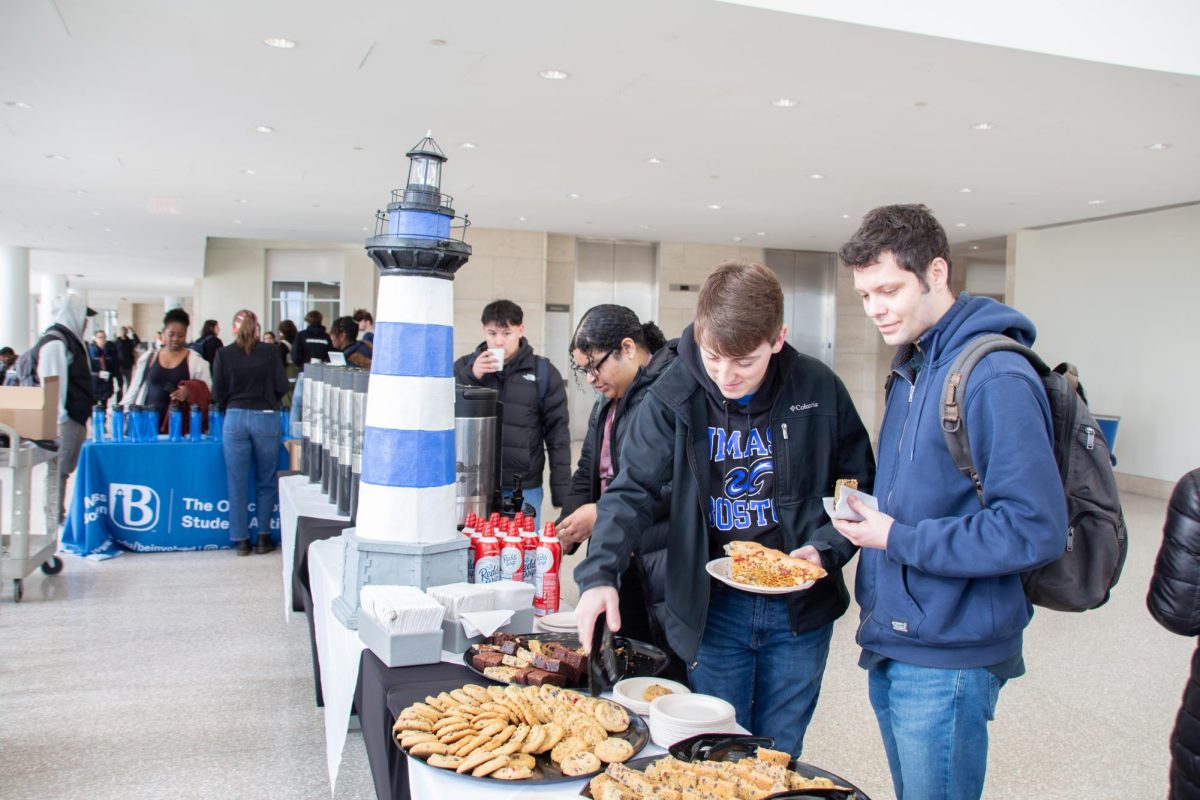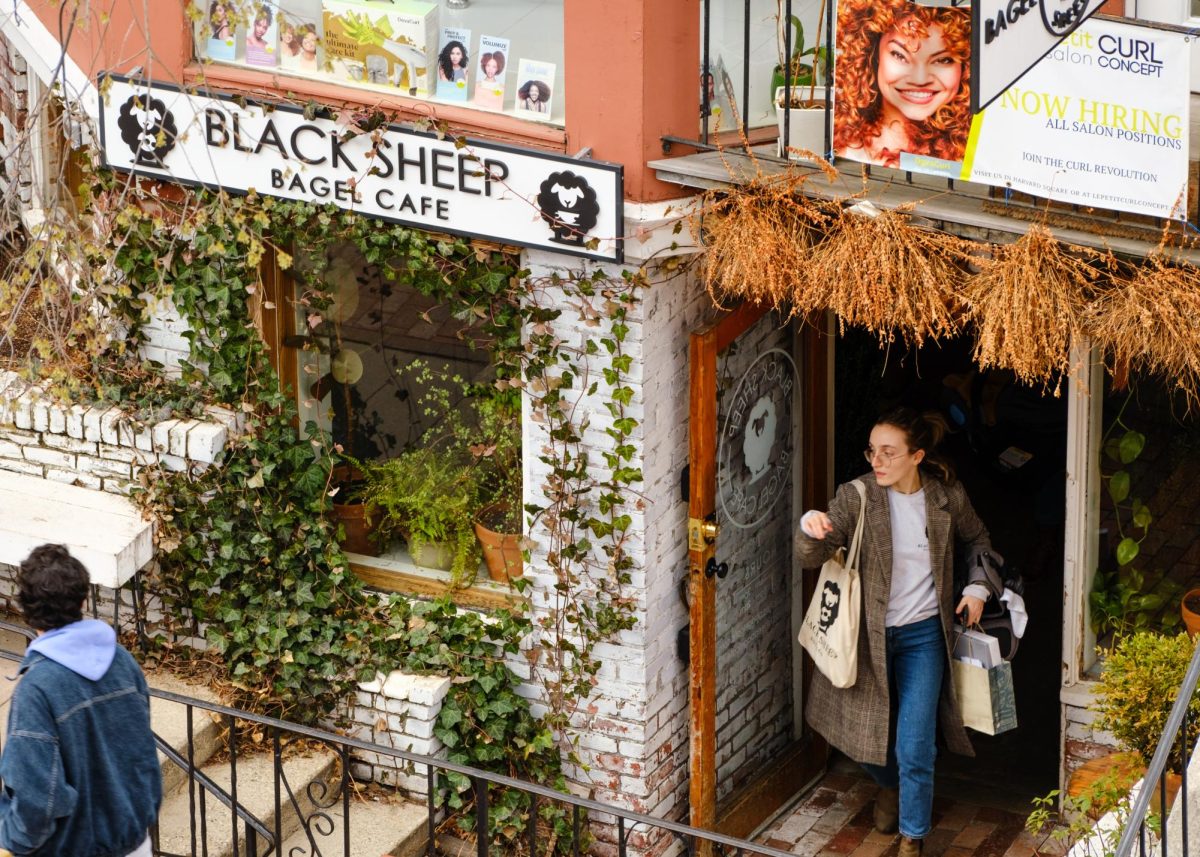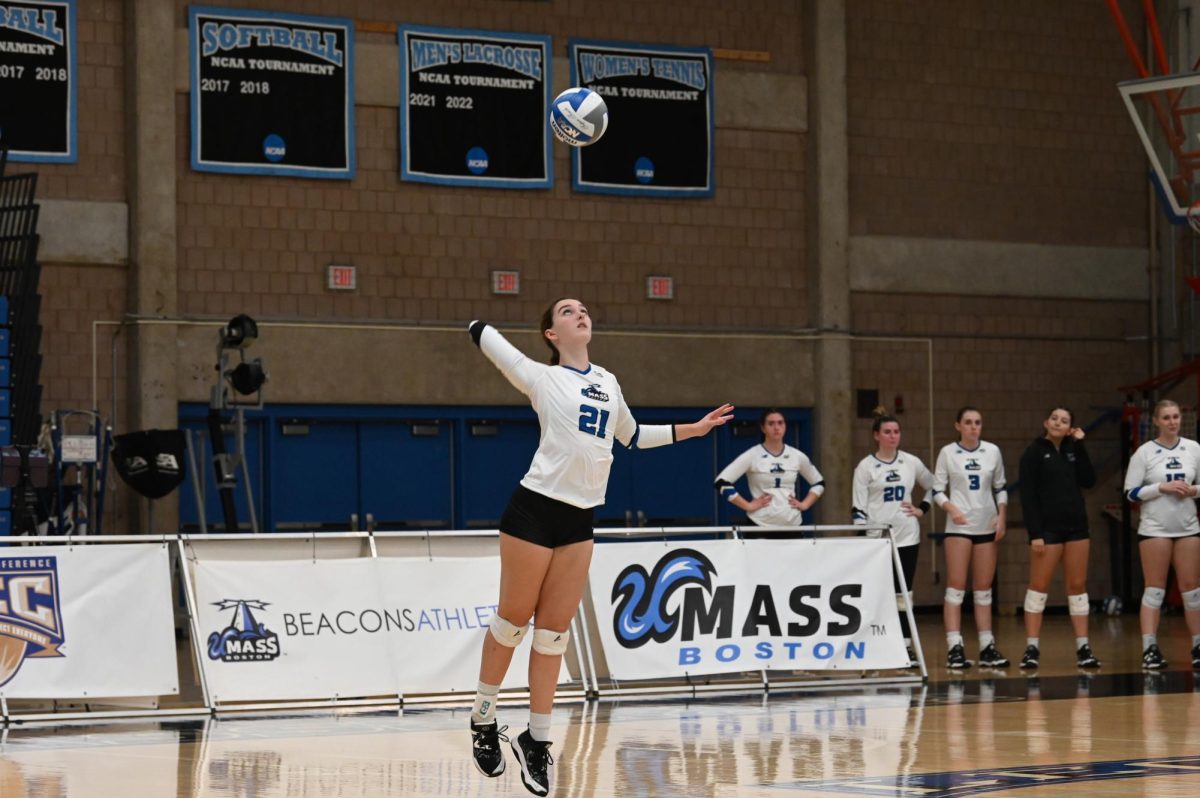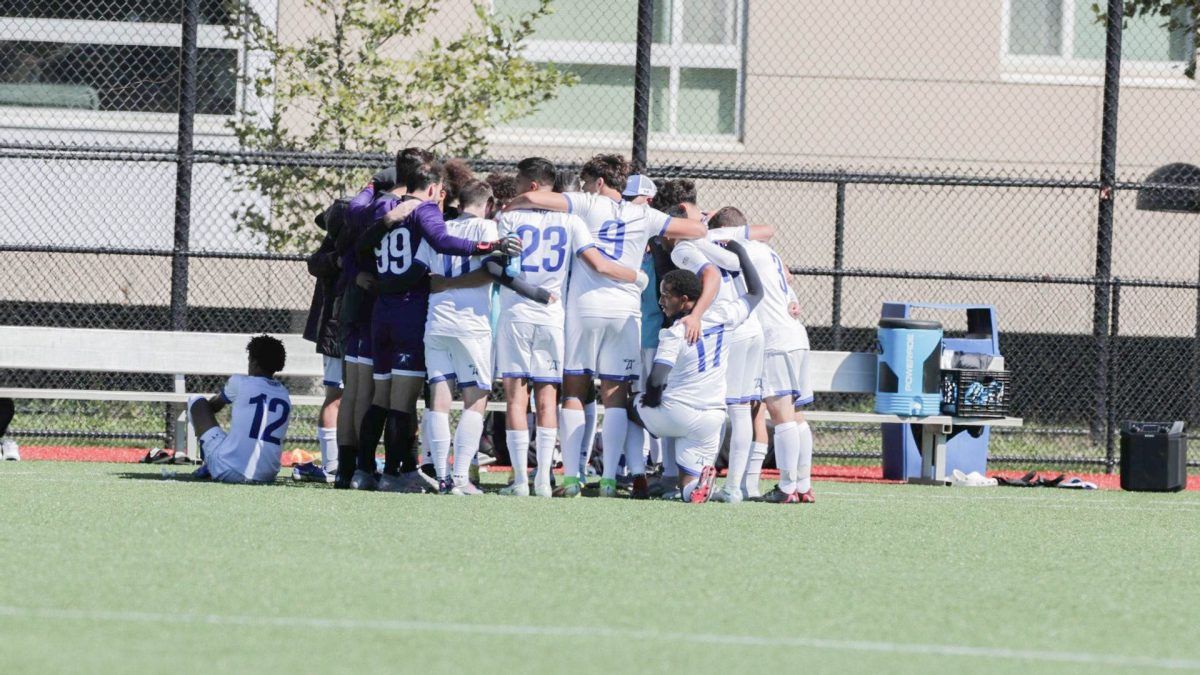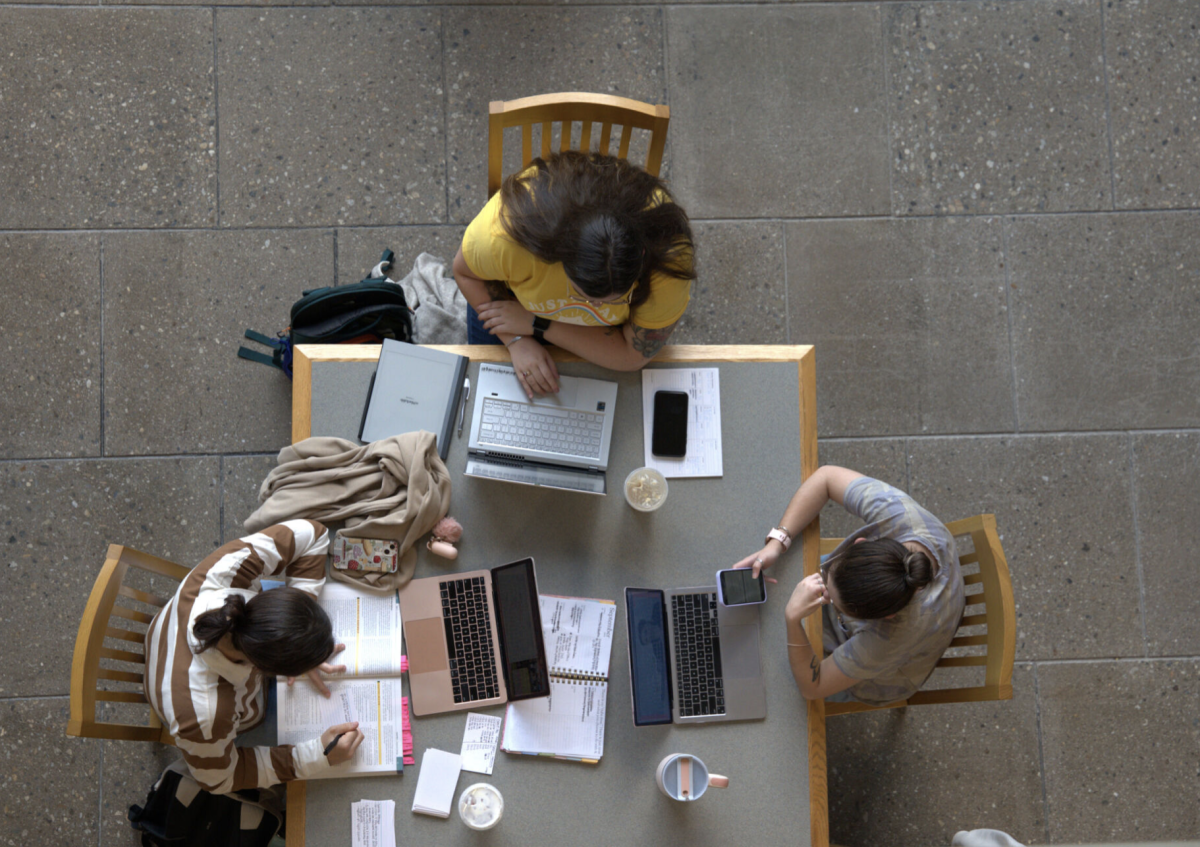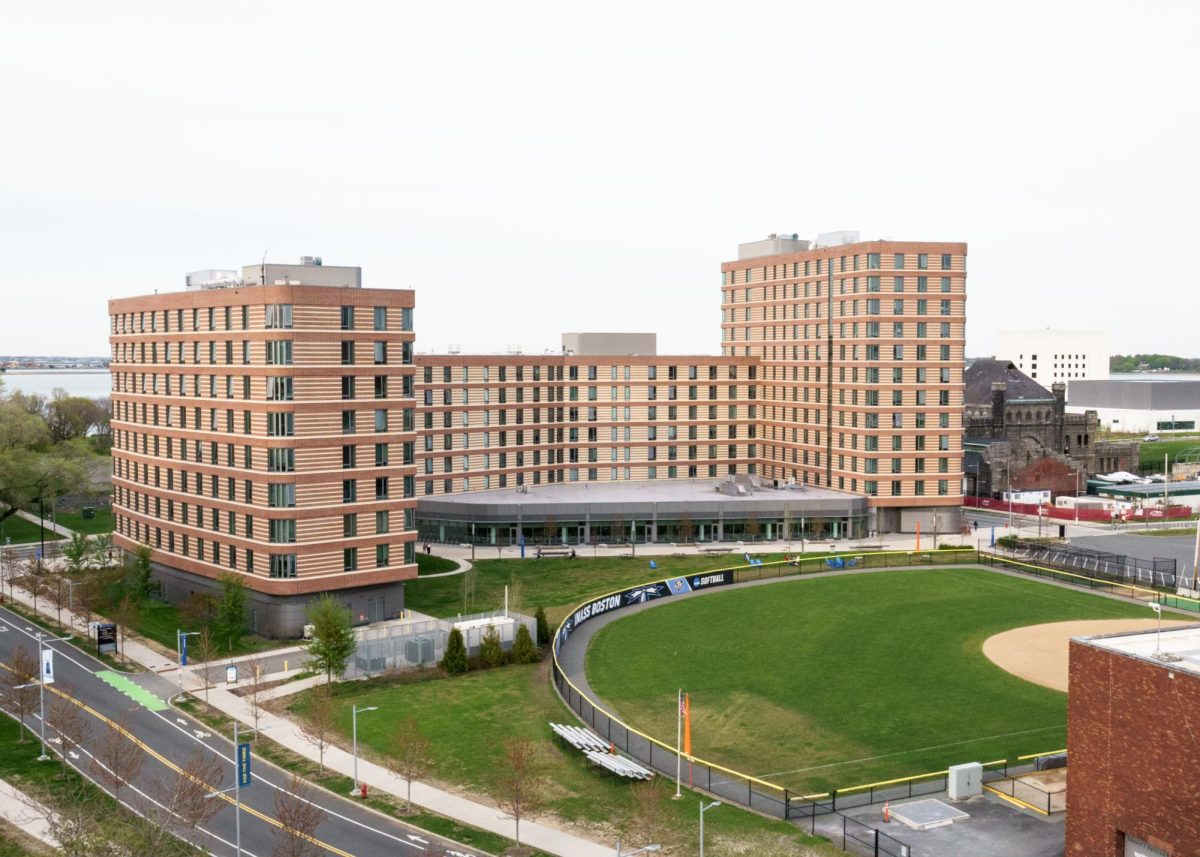Trustees Pick Wilson For President
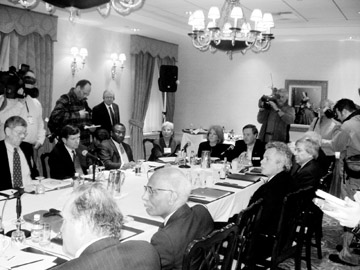
The making of a University President- trustees gathered at the Omni Parker House in downtown Boston. – Photo by Gin Dumcius
April 2, 2004
Former physics professor Jack M. Wilson was made the permanent president of the University of Massachusetts after serving seven months as the interim while a search committee looked for a replacement for former president William Bulger, while questions linger about the process.
“My priority is going to be teamwork, partnership, cooperation and taking the university to the next level,” said Wilson at an impromptu press conference held early Wednesday evening, immediately after the UMass Board of Trustees voted him to lead the five-campus system.
Wilson, who said he was “honored” and a “little bit overwhelmed,” related a conversation he had with Governor Mitt Romney, who battled with Bulger in early 2003 over the new governor’s higher education reorganization plan. “The governor said, ‘Jack, can an interim president actually get anything done?’ And I said, ‘Governor, all presidents are interim presidents,’ and I intend to continue to act like an interim president however long I’m here. I’m the steward of this university.”
Previous to serving as interim, Wilson was appointed vice president of academic affairs by Bulger, and had run UMass Online.
After nearly two hours behind closed doors, the presidential search committee, made up of administrators, faculty, staff, alumni and a student, recommended two finalists to the UMass Board of Trustees: Wilson and top Democratic fundraiser Alan D. Solomont, an alumnus.
The Board of Trustees voted 11-0 after the search committee’s meeting to appoint Wilson, with three abstentions. The abstentions included Trustee Robert McCarthy, head of the state firefighters union, who said he was “disappointed” with the process and that he had been expecting the trustees to be able to interview the two finalists. McCarthy, a veteran of presidential searches, said he had always had a chance to interview the finalists. “It’s our duty to do it,” he said.
McCarthy said he had never met Solomont. “I’ll stay here all night. Bring them both in here.”
Boston attorney Lawrence Boyle, the lone trustee to publicly demand Bulger’s resignation last year, also abstained, saying he wanted more information in order to make an informed decision. A motion for the trustees to interview the candidates was put forth by McCarthy and killed in an 8-5 vote.
Trustee James Karam, president of Fall River’s First Bristol Corporation, in a phone interview several days later, said he feels Wilson will do a “tremendous job.”
Every trustee had the ability to be at the interviews and on the committee, he said, responding to questions about the process raised by trustee McCarthy. The resumes of the candidates were at the President’s Office for several months, and anybody who felt left out of the process “left themselves out of the process,” said Karam.
McCarthy said he was never notified of any interviews. “How can I be there if I’m not notified?” he said. “I’m not a mind-reader.”
When asked by reporters at the trustees’ meeting if the lack of interviews casts doubt on Wilson’s presidency, McCarthy responded, “No, I hope not,” and called Wilson a proven leader who will make an “outstanding” president.
“I have no issue with Mr. Wilson,” McCarthy added in a phone interview, and pointed to his comments during the meeting. “I have an issue with the process.”
UMass Boston’s student trustee Jamal Brathwaite voted to interview the candidates but ultimately ended up voting for Wilson. Brathwaite cited Wilson’s thirty-four year career in academia and experience in raising research funding for the university as his reasons. “We need that at the chancellor level, we need that at the professor level,” he added. Voting power among student trustees, who are elected annually by students, rotates among the five UMass campuses every year.
UMass Boston Chancellor Jo Ann Gora, the only chancellor to make it to the proceedings, released a statement congratulating Wilson on his appointment. “He combines the personal, academic and entrepreneurial credentials so essential in these times for university leaders,” she said. “Since September, he has shown he possesses the skills to work successfully with the governor, the legislature, the business community and the campuses. UMass can look forward to continued success under President Wilson’s leadership.” Chancellors are considered officers of the university who report to the president and do not get a vote on the Board of Trustees.
Reactions among faculty appear to be mostly positive. Professor Estelle Disch, sociology professor and a member of UMass Boston’s faculty council, said, “I think it’s a good idea to have an academic in the job,” noting that Wilson has gone through tenure three times.
“He’ll do a good job,” said Political Science Professor Robert Weiner, who is heavily involved with distance learning programs and UMass Online, added, “You’ll get a lot of reactions.”
“My personal reaction is that a lot of folks are happy the appointment was made,” said College of Public and Community Service (CPCS) Professor Terry McLarney, undergraduate faculty chair for the college. The appointment brings stability to the system and the campus, he said. Speaking for CPCS, he said, “We think things will run well.”
But questions remain about the process, coming from trustees and search committee members alike. While a clear majority for Wilson emerged in the search committee’s meeting, some were disappointed with the rush to pick finalists.
When search committee members arrived for what would be their last meeting, they came upon a different playing field. The last time they had gathered there were six candidates vying for the position. Now, several had withdrawn for various reasons. With Wilson a finalist for the presidency at the Worcester Polytechnic Institute, something had to be done. The committee could not be left with just Solomont, it was decided.
Before the trustees met, the press was let in to see the search committee. While many committee members pointed to Wilson as their favored candidate, some chose to praise both. “Students cannot lose with either,” said Sean Reed, student trustee for UMass Worcester, and the only student on the committee.
Others chose not to comment at all, like UMass Boston professor and associate provost Winston Langley. Langley has declined repeated requests for comment on the search.
Search committee member and UMass Amherst Professor W. Brian O’Connor, who has expressed support for Wilson, also refused to be interviewed, saying that because of his experiences during the search, he would never talk to reporters again. He then stayed true to his word and promptly hung up the phone.
The search for a university president further accelerated after reports were leaked to the press that it was down to Wilson and Solomont. The morning of the March 24 meeting, the Boston Globe was the first to report that former Nebraska senator and 9/11 Commission member Bob Kerrey was also among those in the running, as well as former Delta Airlines CEO Leo F. Mullin. “Neither offered a firm commitment to the position,” the Globe wrote, quoting anonymous search committee members.
When contacted in late February by The Mass Media, Kerrey, through a media consultant, said that there was “no validity to this rumor at all,” going so far as to call it “weird.” The spokesperson pointed to Kerrey’s multi-year contract with New York’s New School University, where he is president. In a phone interview the morning the trustees picked Wilson, the spokesperson, deluged with phone calls regarding the 9/11 Commission, again issued a denial: “To the best of my knowledge, [Kerrey] was never a candidate for the job.”










